
The previous post ended with the question of who was designated to dispense the gifts of Truth and Life within the kingdom. As Jesus says in Luke 22:29-30, it is the Apostles that have been given this task and consequently the authority. In other words, the Apostles have been made rulers in the kingdom. They have authority within the kingdom, and they are to dispense truth through teaching and life through baptism and the Eucharist, which is sacrifice. As Jesus said in John 3:5, “Unless one is born of water and spirit, he cannot enter the kingdom of God,” and John 6: 53, “Amen, Amen, I say to you, unless you eat the flesh of the Son of Man and drink His blood, you have no life in you.”
We see, then, that not only is there Truth and Life in this kingdom, there is also sacrifice. There is the Eucharist. As St. John writes in Revelation 5:9, “You were slain and by your blood you ransomed men for God from every tribe and tongue and people and nation, and have made them a kingdom and priests to our God, and they shall reign on earth.” St. Paul also tells us in 1 Corinthians 5:7-8, “For Christ, our Paschal Lamb, has been sacrificed. Let us, therefore, celebrate the feast.” If there must be sacrifice, then there must be those elected to offer the sacrifice, and as we have seen, this sacrifice is Christ. So not only were the Apostles entrusted with dispensing Truth and Life, but they were also entrusted with the duty of offering the sacrifice of Christ, Who is Truth and Life. Consequently there can be no Truth and Life without sacrifice. They are one and the same. They are Jesus Christ.
Certainly this task was not to end with the Apostles. How can it if the kingdom is to have no end as Luke tells us in the first chapter, thirty-third verse of his Gospel? This fact alone makes it obvious that the authority given by Christ to His Apostles was to be passed down through the generations, so as to provide Truth, Life, and sacrifice for all in the kingdom, not just those present during Jesus’ life.
Being that these men were earthly but the kingdom was heavenly, how was it possible for them to bear such a burden so humanly unbearable while fulfilling it at the same time? It could only come to fulfillment with the infusion of a supernatural strength wrought by Christ Himself, that is, through the procession of the Holy Spirit. This is the only way possible that such natural men could accomplish a mission of a supernatural character. It is only the indwelling and, thus, the supernatural guidance of the Holy Spirit that could preserve both the kingdom and its mission from the natural interferences of men. We see this model even with Christ Himself, but this is not to say that somehow Christ needed the Holy Spirit to keep him from spoiling the mission of establishing His kingdom. As man with a finite human nature, Jesus required the indwelling of the Holy Spirit in order that His human nature may be disposed in such a way as to be able to perform His works as God. The finite human nature is simply not on its own disposed to perform the works of God. That takes an act of the Holy Spirit upon the human nature. This is supported by scripture when in Acts 10:38 we read, “God anointed Him with the Holy Spirit and with power, so that he went about doing good, and curing all those who were under the devil’s tyranny.”
The next post will deal with typology in regard to this new kingdom; how this new kingdom is a fulfillment of the old.
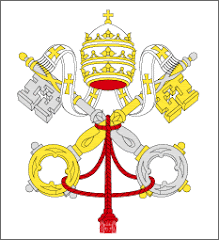
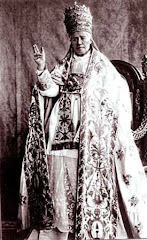
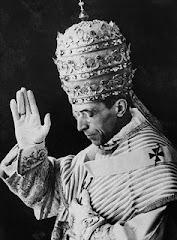

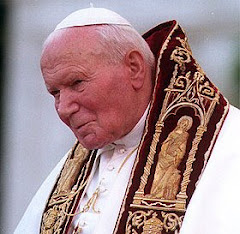
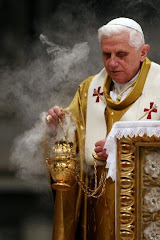













No comments:
Post a Comment